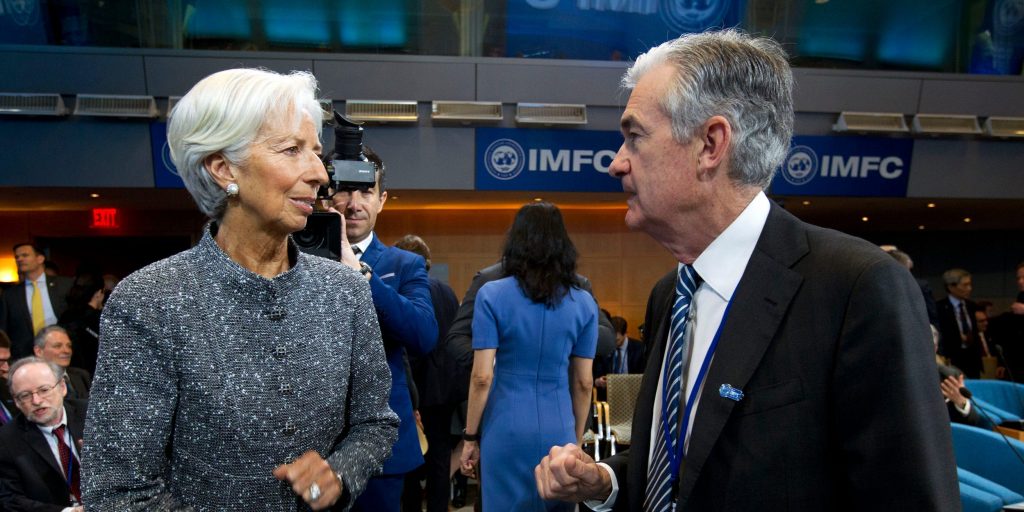- The US isn't alone. The world's largest economies are all dealing with sky-high inflation.
- While price growth is cooling in the US and Japan, the UK and France have seen little improvement.
- The split between economies' inflation battles reveals which nations will lead the next stage of the recovery.
Sky-high inflation has Americans feeling positively dismal about the state of the economy. If it's any consolation, they aren't alone.
If 2021 was the year of global reopening, 2022 is the year of worldwide inflation woes. Price growth has accelerated to the fastest pace in decades across most advanced economies, leaving populations burdened with weakened buying power and a fresh sense of economic pessimism. The world economy is healing, but consumers around the globe are feeling more pain than relief.
There have been some signs that the worst of the price surge is over. Commodity prices lifted by the Russia-Ukraine war have eased somewhat through the summer. Supply chains have improved as well, and shipping rates are the lowest since May, according to freight-payments platform Freightos.
Some countries' headline inflation rates have cooled accordingly. The Consumer Price Index — one of the US's top inflation gauges — eased to an 8.5% rate in the year through July. Germany and Japan's measures have similarly slowed. Yet not every country is past peak inflation, and with rates still near multi-decade highs, the advanced Group of Seven economies have a long way to go before returning to sustainable price growth.
Americans' peers across the pond are still seeing prices surge higher. The UK's CPI accelerated to a 10.1% pace in the year through July, according to government data published Wednesday. That was up from the 9.4% year-over-year rate observed in June and the fastest inflation rate among G7 nations.
The UK has been battered by inflationary pressures from all sides throughout the pandemic. The nation's exit from the European Union severed trade relations that helped pull prices lower. The UK is also much more reliant on Russian energy than the US, and while the government has rolled out a plan for increasing the UK's energy independence, such measures will take several months — if not years — to weigh on inflation.
And while inflation is starting to slow in some major economies, economists fear the UK's worst has yet to come. The nation's headline inflation rate is set to surpass 18% at the start of 2023, economists at Citi said in a Monday note, according to the Financial Times. That's well above the Bank of England's own forecast for 13% inflation near the end of the year and would mark the fastest price growth in nearly five decades.
The acceleration will come from even-higher prices for natural gas, Benjamin Nabarro, chief UK economist at the bank, said. The economists see the government nearly tripling the price gap on for households' heating and electricity costs through the first months of 2023. That will contribute to inflation "entering the stratosphere," Nabarro said.
Though the UK's inflation rate stands alone, the rest of the G7 isn't out of the woods just yet. Inflation remains near once-in-a-generation highs in most countries, and central banks around the world are lifting interest rates at a historic pace to weaken demand and slow their price surges. Uncertainties from the Russia-Ukraine conflict and supply-chain rebound also loom large and could present some headwinds on the road to recovery.
The world's largest economies are diverging in their inflation battles. The US isn't alone in its fight against soaring prices, and it's faring much better than some of its peers.
